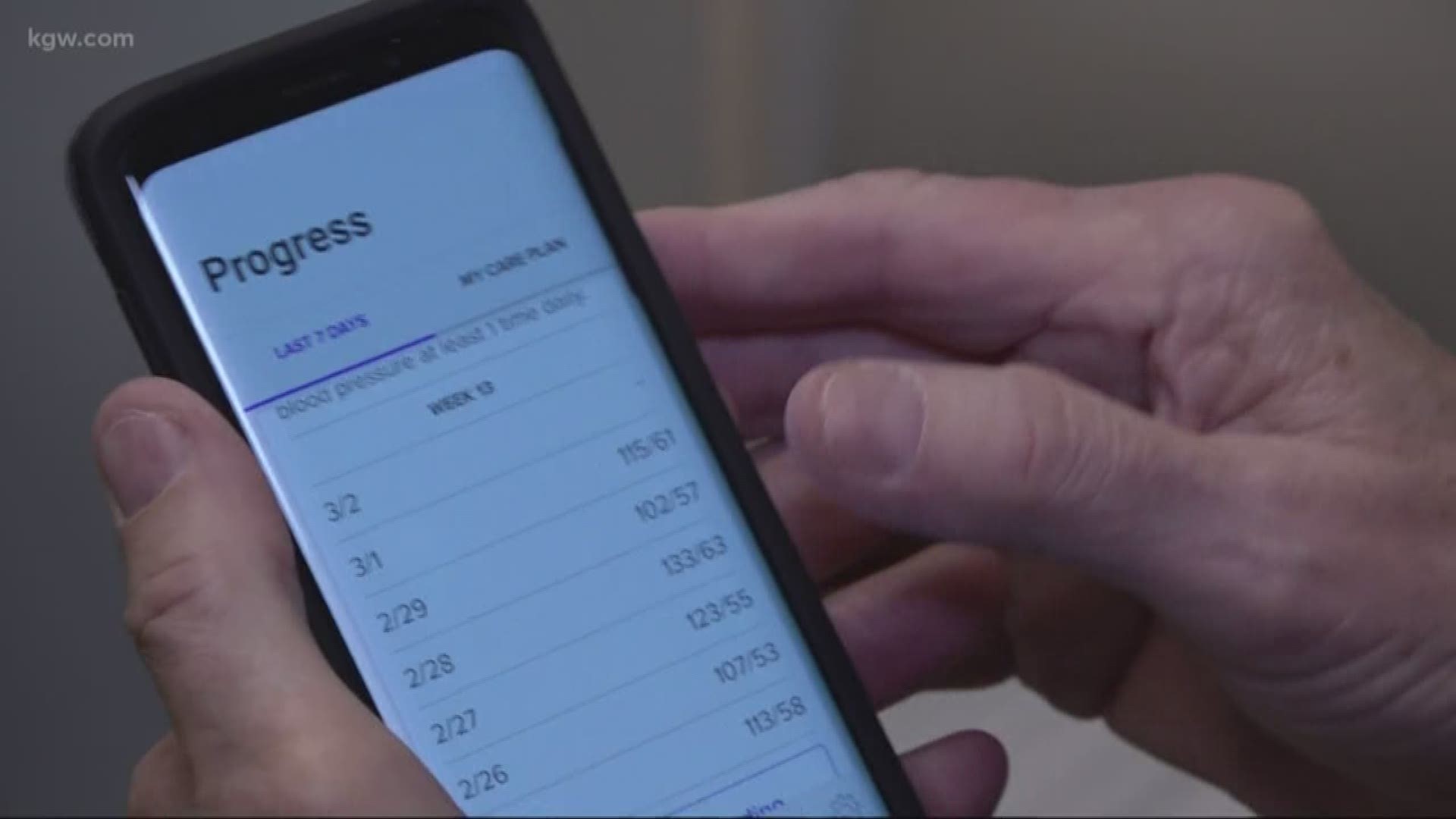CLACKAMAS, Ore. — A new program at a Clackamas hospital is helping people live a healthier life after a heart attack. Cardiovascular rehabilitation programs have been proven to keep patients out of the emergency room and living longer. However, the majority of people who would benefit to this form of follow-up care do not take part.
Dick Akins, a retired investment adviser from West Linn, is counting his blessings and his steps after quadruple bypass surgery last fall.
“They found out I had a bad heart. And they usually like to use stents, but in my case, it was too far gone,” Akins said.
Now, he is in a new routine. He tracks his exercise and eating habits each day as part of his recovery.
Like many patients who have had a heart attack or other heart problems, Akins was referred to cardiac rehab. Typically, cardiac rehabilitation is a 12-week medically supervised program focused on exercise and promoting a healthy lifestyle.
“Cardiac rehab has been shown to reduce your chances of having another heart attack, reducing your chances of dying from a cardiac event or similar event, reduces your chances of coming back into hospital,” Dr. Siobhan Gray at Kaiser Permanente’s Mt. Talbert Clinic said.
Cardiac rehab aims to improve a patients’ overall quality of life. Despite those benefits, studies show that more 80 percent of patients who are eligible for the program don't participate.
“A lot of our patients wouldn't go to cardiac rehab because of the commitment and they'd be working during the week and have to go during the day, three days a week,” Registered Nurse Heather Carey said.
Expensive copays and traveling long distances for in-clinic programs often prevent patients from participating in traditional cardiac rehab, according to Kaiser Permanente.
That is where the new Virtual Cardiac Rehab (VCR) program comes in.
“Now, they can do everything virtually at the time they want to do it, the schedule they want to do it,” Carey said.
Patients, like Akins, use a fitness tracker and smartphone app to record their exercise, heart rate, blood pressure and more.
“It's very user friendly,” Akins said.
They upload their data to a secure website so a specially trained cardiac nurse, like Carey, can track their progress. Those nurses check in regularly with patients by phone to provide coaching and answer patient questions.
While Akins is out hitting the pavement, walking about three miles a day, Carey is back at Sunnyside Hospital’s Mt. Talbert Clinic, keeping tabs on his progress.
Akins says, without the option to do cardiac rehab from home, he wouldn’t be making such strides in his recovery.
“Well, let's just say I made a commitment to mile walks and never did it until I went through this cardiac rehab program,” he said. “And now, because I do have somebody just checking up on me, I have to make sure I do it and do it well.”
He is doing it, and doing it well; not just for himself, but for his three children, six grandchildren, and loving wife.
“53 years ago, I married a woman who is my caregiver and I'll tell you, not only do I get monitored by Kaiser, but I get monitored by her every day,” Akins said.

